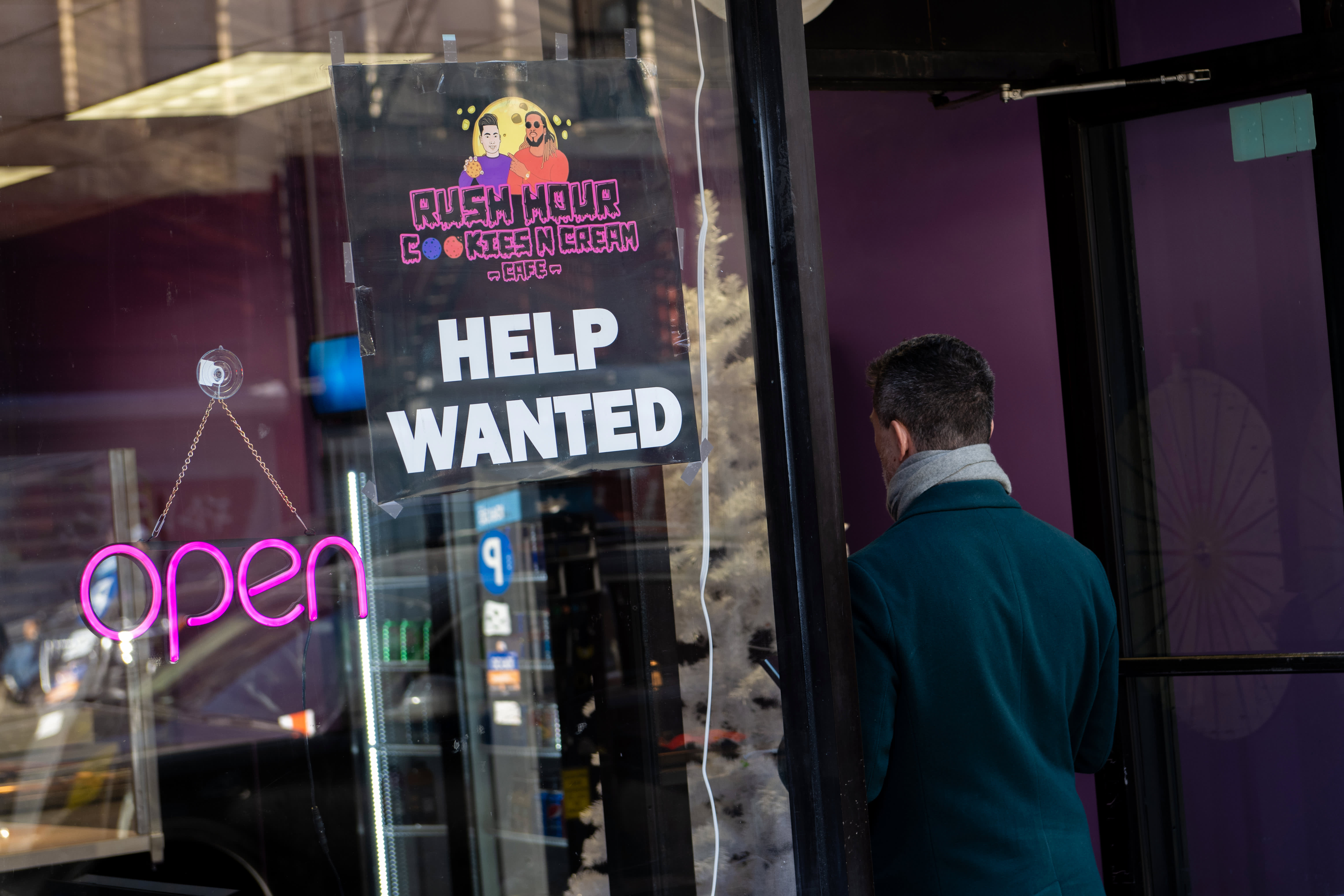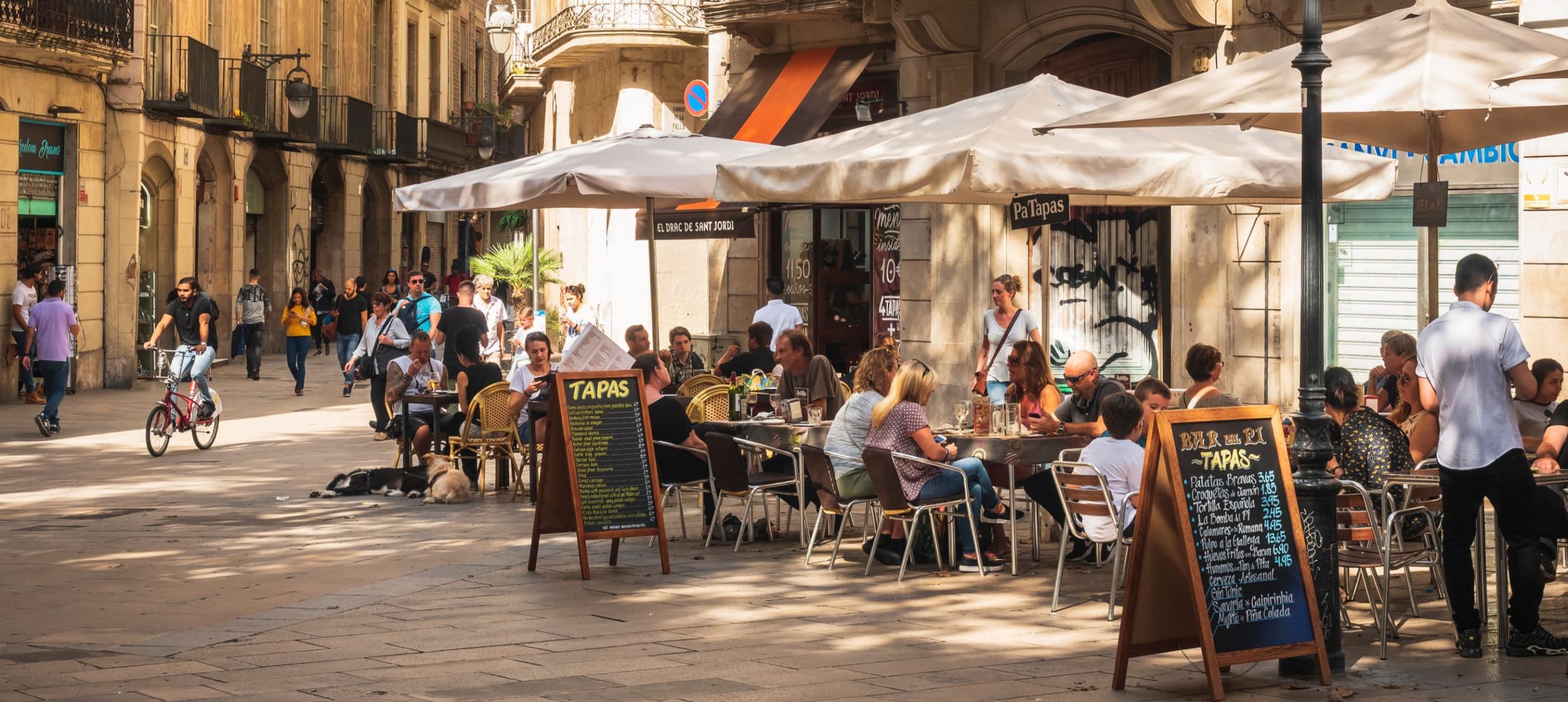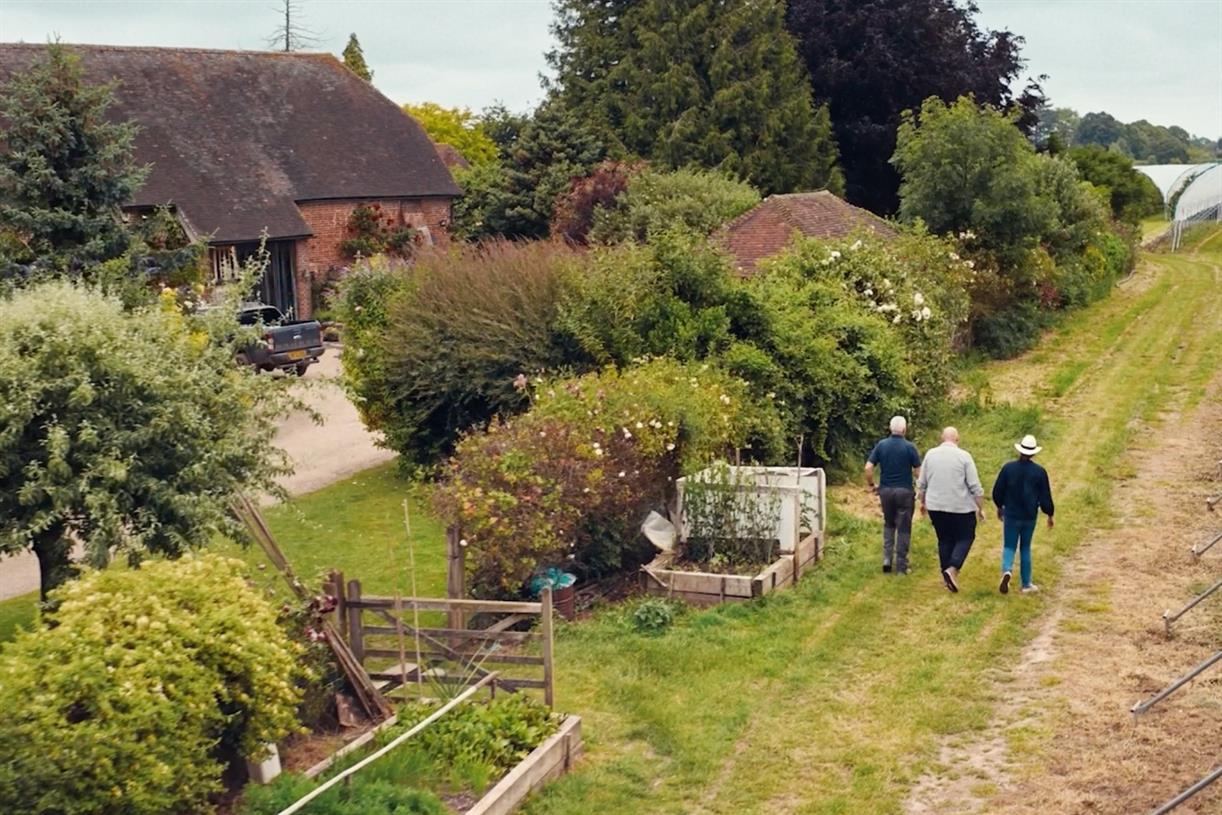28-year-old made 15 offers, went $65,000 over asking price and still got rejected: The housing market is ‘a slap in the face’
To afford a home in many American cities, first-time buyers increasingly need to be wealthy or rely on family help, and they are losing hope.

Kelcie Lesko and Tim Khalil remember the moment when they gave up on buying their first home.
It was June 2023, when U.S. homebuyers were scrambling to beat out rising mortgage rates and snatch up what they could from a limited number of units on the market. Amid soaring house prices, many buyers made all-cash offers. Lesko and Khalil, a New Jersey couple, had lost out on about 15 bids on properties in Monmouth County at that point.
"We were just getting blown out of the water," says Lesko, 28, who works in marketing. They had stretched their original budget from $300,000 to $380,000, and had been offering tens of thousands over list price to keep up with other bids.
Their last offer was a "beautiful" two-bedroom house with lots of space and a backyard, which they sensed "was going to be the one," says Khalil, 30, a police officer. They offered $380,000 on the $315,000 residence and shook the hand of the seller, who said it was between them and another offer.
When their offer was rejected, "it was like a slap in the face telling us, 'Wake up, this is just not for you,'" says Lesko.
Kelcie Lesko and Tim Khalil gave up on buying their first home in New Jersey.
Courtesy of Kelcie Lesko and Tim Khalil
They decided to stop looking for a home. Instead, they continue to rent a two-bedroom apartment for just under $3,000 per month.
"We both make good money. We both have good jobs. We've both done the right things to prepare us to become homeowners," says Lesko. "But the way things are with the real estate market right now, I don't think it's possible for us to own a home."
Lesko and Khalil are emblematic of many frustrated would-be buyers in their late 20s to early 40s who, despite doing everything "right," find themselves priced out of homeownership.
Most members of the millennial generation entered adulthood during the 2008 financial crisis and aftermath. They faced a bleak job market, stagnant wages and mounting student debt, which hindered their ability to save.
As they enter their peak homebuying years, they face a housing shortage that's driven the median U.S. home price to $412,300. That's 40% higher than their parents paid in 1990, even after adjusting for inflation.
If they manage to stay ahead of rising costs of living and save enough for a bigger down payment, they're further squeezed by higher mortgage rates, which have more than doubled since 2022 and increased monthly payments.
And while buyers must spend more, they often have to lower expectations for what they'll get: They're finding that available homes are smaller, farther away or in need of costly repairs.
In conversations with CNBC Make It, millennial buyers describe the trade-offs they face and their feelings of devastation, disappointment and anger that the goalposts keep moving and they can't seem to win.
First-time homebuyers face a very different real estate market than their parents
Homes have always been a major expense for first-time buyers, including boomers and Gen Xers. What's changed is that houses — along with college tuition, rent and health-care costs — have become significantly more expensive, even when adjusted for inflation.
Wages aren't rising fast enough to keep up: Home prices have grown twice as much as incomes since 1985.
In recent years, the average 30-year fixed mortgage rate more than doubled from historic lows of around 3% in 2020 to a high of 7.6% in October 2023. The average has since come down slightly to 6.2%.
"When you look at mortgage costs relative to how much a typical family earns, it's untenable — there's not really any way for a middle-class family to afford a home right now if they're a first-time homebuyer," says Daryl Fairweather, senior economist at Redfin.
The median house price in the U.S. is now 5.8 times more than the median annual income of $80,000. In 1990, homes cost just two times as much as the median income.
That means mortgage payments are generally bigger, and it takes much longer for millennials to save for a down payment. Depending on location, it now costs $74,000 to $140,000 to put down 20% on a typical U.S. house, not including closing and other costs.
When communications professional Kelly Diehr, 31, and her husband started looking for a Denver-area home in January 2024, they figured a budget of $600,000 would go a long way. That was, after all, the median price for a house in the area at the time.
But the upfront costs of owning are much higher compared with those faced by homebuyers her age in the late 1990s, like her parents' generation, she says, and the money doesn't go as far.
"You go into the market, and you realize you have to give up on the ideal home that you thought you were gonna get, because six figures nowadays is nothing to buy a home," says Diehr.
Kelly Diehr struggled to find an affordable home in Denver.
Courtesy of Kelly Diehr
For $600,000, many of the available homes were over 20 years old, located in less-desirable areas and in need of serious renovations, such as new flooring, kitchens and bathrooms.
When she was growing up, Diehr's immigrant mother from Brazil "hammered" at the idea of the American Dream — a pillar of which is homeownership, long viewed as a source of stability and independence.
"We start looking and think, 'OK, we're making more than our parents, we should be able to get a better home than them right now,'" says Diehr. "For $600,000, you'd think we'd be getting a turn-key home: three bedrooms, all-wood floors, two bathrooms and a decent backyard. And that is absolutely not the case."
You go into the market, and you realize you have to give up on the ideal home that you thought you were gonna get, because six figures nowadays is nothing to buy a home.
Kelly Diehr
first-time homebuyer
To better compete with other bids, the couple upped their budget by dipping into stock investments. They ended up buying a newly constructed three-bedroom home for $789,000 in April 2024. They were able to negotiate $47,000 in seller credits, which they used to buy down their mortgage interest rate to a more manageable 4.25%.
Diehr feels grateful they were able to make it work, but the trade-off was withdrawing from their retirement savings and spending about $200,000 more than they had originally budgeted.
Many major U.S. cities are only affordable to the highest earners
For many young Americans, big cities like Los Angeles and New York offer the appeal of more job options, better pay, and a chance to meet different people. The rub? Even entry-level homes there can seem reserved for the wealthy.
When Jonathan Ochart, 32, moved from San Antonio to LA in March 2023, he thought he might be able to buy a small condo for $450,000. "One bedroom, 600 to 700 square feet, nothing fancy," he says.
The founder and CEO of a marketing and public relations company, Ochart was already a homeowner, having purchased a detached, two-bedroom house in San Antonio for roughly $275,000 in 2021. At that time, he was able to secure a 30-year fixed mortgage rate of 2.86% — a far cry from the nearly 8% banks charged in 2023.
Jonathan Ochart gave up on buying a condo in Los Angeles.
Courtesy of Jonathan Ochart
"The only reason I was able to accomplish that was the historically low mortgage rates," says Ochart, who now earns a net profit of about $100 per month renting out the home.
In LA, the condo listings in Ochart's price range were far from his preferred neighborhoods and usually needed renovations, or they came with high homeowners association fees as part of a special assessment for repairs. Newer places in his budget turned out to be studio apartments that were closer to 350 square feet, without much closet space.
Ochart could have sold his San Antonio property to increase his budget. But he preferred to keep the home as a fallback option in case he ever had to return to Texas, especially since it was "locked in at a monthly price" that he can afford.
In early 2024, Ochart gave up on buying a condo in LA, where monthly mortgage costs would have been around $3,500 to $4,000. Instead, he found a rental he likes for about $2,100 per month, roughly half of what he would have spent on a home.
It feels "like a Catch-22," says Ochart: "You can afford places in [smaller] cities that might not have job opportunities, but when you move to a bigger city with job opportunities, you're priced out."
You can afford places in [smaller] cities that might not have job opportunities, but when you move to a bigger city with job opportunities, you're priced out.
The median price of a home in Los Angeles county is just under $960,000, according to Zillow listings data. That's 14 times the median annual household income of $82,455 in that county, according to the most recent U.S. Census data.
"Compared to the boomers or Gen X generation? It's apples to oranges. It's just not a level playing field," says Ochart about the income now needed to afford a home.
It's not just big cities that have become unaffordable
The rise in metro-area home prices has had a spillover effect in many mid-sized cities, which saw an influx of buyers from larger metros seeking more space and affordability during the Covid lockdowns in 2020, leading to rapid home price growth during the same period.
These "pandemic darlings," as they became known, include mid-sized cities like Boise, Idaho; Tacoma, Washington; and Grand Rapids, Michigan. In Grand Rapids, median home prices were on the rise before the pandemic and then soared 54% from 2020 to $285,000 in June 2024, according to Zillow sales data.
Grand Rapids' swift home price growth has squeezed out local buyers like Timothy Ham, 40, a veteran and network security engineer who had to relocate to Kalamazoo, an hour's drive away.
Timothy Ham couldn't find an affordable property in his hometown of Grand Rapids, Michigan.
Courtesy of Timothy Ham
In 2022, Ham struggled to find a one-bedroom rental in Grand Rapids for about $700 a month. For that same amount, he realized he could buy a $100,000 home with a VA loan that didn't require a down payment.
However, the only affordable places he could find in Grand Rapids were "uninhabitable," Ham says. Instead, he had better luck in Kalamazoo, where he purchased a two-bedroom house for $79,000, with mortgage payments of $635 per month.
While Ham was able to secure monthly payments well below what most Americans pay, living in Kalamazoo came with trade-offs, like having to drive an hour each way to work. He also says he moved into a "rougher neighborhood" where he hears gunfire "on a regular basis."
Although he loves Kalamazoo and is happy to be a homeowner, the experience left him frustrated.
"I'm kind of put off that I was born and raised in Grand Rapids, served in the military for 20 years, and it's like, 'Now we don't have a home for you, go somewhere else,'" says Ham. "But at the end of the day, you've still got to figure out a solution."
First-time buyers are now wealthier, more likely to get family help
Taken together, these factors have created an environment where only certain prospective homebuyers succeed.
Americans now need to earn around $111,000 to afford a median-priced home with a 20% down payment — a staggering 50% increase over the past four years, according to Bankrate. To keep up with those prices, 36% of millennial and younger homebuyers rely on family help to cover down payments, up from 18% in 2019, according to Redfin.
The financial support helps them enter the market sooner, secure better mortgage terms and compete more effectively for a limited number of homes — at the expense of lower-income buyers and people without family help.
First-time buyers are increasingly older, too. In the 1980s, Americans tended to buy in their late 20s, but these days the median age is closer to 35, according to the National Association of Realtors. The share of first-time homebuyers has also declined since the 1980s — from roughly half of all buyers down to just under a third in 2023.
That's largely because millennials must compete with boomers for homes, and that isn't a fair fight. The average millennial has 30% less wealth at 35 than the average baby boomer did at the same age. And they only have 9.4% of the total U.S. wealth, compared with 51.8% for boomers.
The coming years could be tough for younger buyers, since there aren't nearly enough properties to meet demand. As it stands, there's a housing shortage of 4 million homes, according to NAR's most recent estimates. While construction has picked up in recent years, it's remained below pre-2009 levels due to continued supply shortages, high mortgage rates and a severe deficit of construction workers.
"We will need 1.8 million new housing units for about five consecutive years to remove the housing shortage deficit," says Lawrence Yun, chief economist at NAR. Until that gap is closed, experts expect prices to keep trending upwards.
Revisiting the American Dream: 'It just doesn't make sense to spend all that money'
Nearly 3 in 4 millennials say that owning a home is a key part of the American Dream, the belief that anyone can achieve "success" and upward mobility through hard work.
Millennials who are unable to buy can feel a hit to their sense of selves. Others may stretch their housing budgets to keep up with the Joneses, at the cost of other financial goals like saving for retirement.
"That idea of owning your own land is deeply embedded in the American psyche," says Ramit Sethi, bestselling author and star of Netflix's "How to Get Rich." "It's underappreciated when it comes to home-purchasing decisions."
Falling short can feel like a personal failure, says Brad Klontz, a financial psychologist and certified financial planner. That's because homebuying is often driven by emotions, like the fear of missing out: "Without a doubt, whether it's the right decision or the wrong decision, you're being influenced by a bunch of subconscious biases and beliefs."
That idea of owning your own land is deeply embedded in the American psyche.
Ramit Sethi
star of Netflix's "How to Get Rich"
Emotional decisions can lead buyers to spend more on housing than they can afford, says Klontz. Indeed, nearly half of current U.S. homeowners have regrets about their purchase, citing unexpected expenses as the No. 1 regret, according to a recent Bankrate survey.
Given how unaffordable homes are, Klontz recommends taking a hard look at the numbers. You might be better off investing your money, rather than using it to try to buy a home, he says: "Where's it written that in order to have really 'made it' you need to be a homeowner?"
"For me, real estate isn't just financial, it's also personal," says Ochart. The home he secured in Texas with a low interest rate gives him a sense of "safety."
At the same time, he says, "if you don't love the space, and you don't love the neighborhood, it just doesn't make sense to spend all that money that you've worked so hard to save."
While Kelcie Lesko and her husband believe they're better off not buying a home for now, they remain "devastated" by the state of the real estate market.
Even if interest rates drop, it likely won't affect housing costs right away. Home prices are expected to rise by 15% to 25% in the next five years, largely driven by the gap between supply and demand, according to Yun, NAR's chief economist.
For now, Lesko has lost hope that she'll be a homeowner anytime soon. Without a windfall or generational wealth, "it's nearly impossible for people our age to buy a home," she says.
Want to master your money this fall? Sign up for CNBC's new online course. We'll teach you practical strategies to hack your budget, reduce your debt, and grow your wealth. Start today to feel more confident and successful. Use code EARLYBIRD for an introductory discount of 30% off, now extended through September 30, 2024, for the back-to-school season.


 Lynk
Lynk 






























